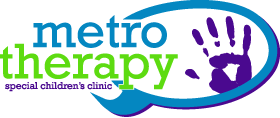Is My Child Developmentally Delayed?
When it comes to child development, there are certain milestones that parents look forward to, such as a baby's first steps or first words. However, not all children reach these milestones at the same time. If your child doesn’t seem to be developing in line with their peers, they may have a delay. Developmental delays are when a child doesn’t reach the average developmental milestones for their age group. These can include physical, cognitive, speech, language, social, and emotional skills. Early intervention can benefit children with developmental delays and allow them to reach their full potential. It's important for parents and caregivers to be aware of the signs of developmental delays, what causes delays, and how pediatric therapy can help children gain the skills they need for success in life.
Why Are Developmental Milestones Important?
Every child develops at their own pace, and even siblings may not reach developmental milestones by the same age. The milestones we track are based on the average age that most children attain the given skills. Children who don’t achieve their milestones by or shortly after the given age may need extra help to ensure their future success.
For example, if a three-year-old girl can’t speak well enough for people outside her family to understand her, the family may not think there is a problem—after all, they can understand her just fine. But once she gets to preschool or kindergarten, she will have a hard time making friends or learning if she can’t speak well enough for others to understand what she’s saying. This can impact her social development, her education, her happiness, and her self-esteem.
While pediatric therapy to address delays may seem unnecessary at young ages, early intervention is crucial, knowing that brain development is exponential at this young age so much growth and learning happens. Early intervention can help a child succeed in life both academically and socially.
What Causes Developmental Delays?
It’s important to note that these delays do not necessarily indicate a lack of intelligence or potential. Children can be very bright and capable and yet need help mastering certain skills due to conditions like:
Autism spectrum disorder
Sensory processing disorder
Premature birth
Limited opportunity for socializing with peers
Injuries or illnesses
Healing from surgical procedures
Developmental Milestones in Different Age Groups
Developmental delays can manifest in a variety of ways, depending on the age of the child. If you notice that your child isn’t reaching any of the below milestones or those listed on the CDC website, you should speak with their pediatrician or schedule a pediatric therapy screening as soon as possible. Early intervention can make a significant difference in your child’s future success.
Infants (Birth to Age 1)
Makes cooing or babbling sounds by 4 months
Rolls from belly to back by 6 months
Has a range of facial expressions by 9 months
Pulls their body up to stand by 1 year
Toddlers (Ages 1 to 3)
Points to things to ask for them or get help by about 15 months
Walks without assistance by about 14 months
Uses hands to twist objects like doorknobs or lids by about 2.5 years
Speaks clearly enough for others to understand most of the time by about 3 years
Preschoolers (Ages 4 to 5)
Says sentences with four or more words by about 4 years
Tells real or imagined stories by about 5 years
Hops on one foot by about 5 years
Answers simple questions about a story you just read to them by about 4 years
Developmental Delays Parents Should Act on Immediately
There are some developmental milestones that, if not reached by the expected age, can indicate a serious medical condition that needs treatment. If you notice any of the below signs in your baby, you should talk with their pediatrician immediately to ensure your baby is well:
Doesn’t react to sounds by looking for the source
Doesn’t follow moving objects or people with their eyes
Moves very little or seems stiff
Arms and legs seem floppy or weak
Doesn’t react when they see your face or a new face
Covid Lockdowns Have Impacted Children's Development
The Covid-19 pandemic has affected nearly everyone, but especially children. With lockdowns in place around the world, children have had to spend more time at home and away from peers and social interactions. This lack of socialization and limited opportunities for play and exploration can lead to delays in achieving developmental milestones, such as learning to walk, talk, and share with peers. Many of these children are now ready to start daycare, preschool, or kindergarten but lack the developmental skills that will help them thrive. Some even struggle with anxiety now that they are expected to be away from home most of the day. Pediatric therapy can help handle this and bridge the gap between what your child can do and what they need to be able to do for success in school and life.
Schedule Your Free Screening Today
If you are concerned about your child’s development, give us a call at (763) 450-9400 to schedule a free pediatric therapy screening. We’ll create a treatment plan to address your child’s specific needs to help them be the very best they can be.

